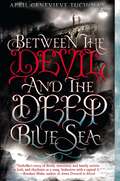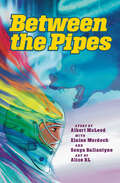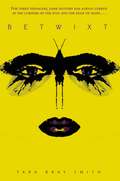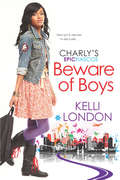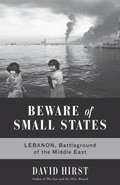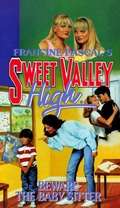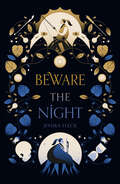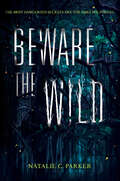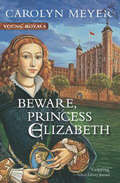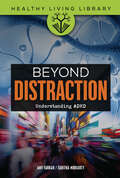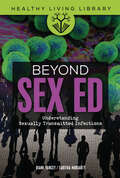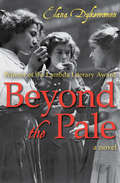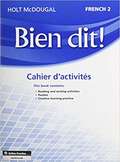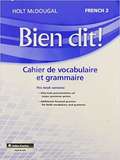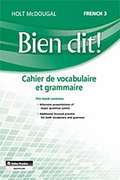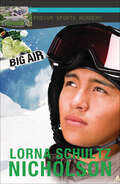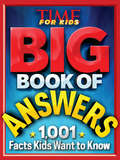- Table View
- List View
Between the Devil and the Deep Blue Sea
by April Genevieve TucholkeYou stop fearing the Devil when you're holding his hand... Nothing much exciting rolls through Violet White's sleepy, seaside town...until River West comes along. River rents the guesthouse behind Violet's crumbling estate, and as eerie, grim things start to happen, Violet begins to wonder about the boy living in her backyard. Is River just a crooked-smiling liar with pretty eyes and a mysterious past? Or could he be something more? Violet's grandmother always warned her about the Devil, but she never said he could be a dark-haired boy who takes naps in the sun, who likes coffee, who kisses you in a cemetery...who makes you want to kiss back. Violet's already so knee-deep in love, she can't see straight. And that's just how River likes it. A gothic thriller romance with shades of Stephen King and F. Scott Fitzgerald, set against a creepy summertime backdrop--a must-read for fans of Beautiful Creatures, The Unbecoming of Mara Dyer, and Anna Dressed in Blood.
Between the Devil and the Deep Blue Sea
by April Genevieve Tucholke"Looking for dark and eerie read...? Look no further than April Genevieve Tucholke's YA debut, Between the Devil and the Deep Blue Sea."--EntertainmentWeekly.com"Deliciously creepy."--TheAtlanticWire.com*"A stunning debut with complex characters, an atmospheric setting, and a distinct voice... Tucholke has real talent."--VOYA, starred reviewYou stop fearing the Devil when you're holding his hand...Nothing much exciting rolls through Violet White's sleepy, seaside town... until River West comes along. River rents the guesthouse behind Violet's crumbling estate, and as eerie, grim things start to happen, Violet begins to wonder about the boy living in her backyard. Is River just a crooked-smiling liar with pretty eyes and a mysterious past? Or could he be something more? Violet's grandmother always warned her about the Devil, but she never said he could be a dark-haired boy who takes naps in the sun, who likes coffee, who kisses you in a cemetery...who makes you want to kiss back. Violet's already so knee-deep in love, she can't see straight. And that's just how River likes it.A gothic thriller romance with shades of Stephen King and F. Scott Fitzgerald, set against a creepy summertime backdrop--a must-read for fans of Beautiful Creatures, The Unbecoming of Mara Dyer, and Anna Dressed in Blood.
Between the Pipes
by Albert McLeodThirteen-year-old Chase&’s life and identity should be simple. He&’s the goalie for his hockey team, the Eagles. He&’s a friend to Kevin and Jade. He's Kookum's youngest grandchild. He&’s a boy. He should like girls. But it&’s not that simple. Chase doesn&’t like girls the way that the other boys do. It&’s scary being so different from his peers. Scarier still is the feeling that his teammates can tell who he is—and that they hate him for it. If he pretends hard enough, maybe he can hide the truth. Real strength and change can&’t come from a place of shame. Chase&’s dreams are troubled by visions of a bear spirit, and the more he tries to hide, the more everything falls apart. With the help of an Elder and a Two-Spirit mentor, can Chase find the strength to be proud of who he is? Between the Pipes explores toxic masculinity in hockey through the experiences of an Indigenous teen.
Betwixt
by Tara Bray SmithFor three teenagers, dark mystery has always lurked at the corner of the eyes and the edge of sleep. Beautiful Morgan D'Amici wakes in her trailerpark home with dirt and blood under her fingernails. Paintings come alive under Ondine Mason's violet-eyed gaze. Haunted runaway Nix Saint-Michael sees halos of light around people about to die. At a secret summer rave in the woods, the three teenagers learn of their true, changeling nature and their uncertain, intertwined destinies. Riveting, unflinching, beautiful, Betwixt shows a magic as complex and challenging as any ordinary reality.
Beware of Boys (Charly's Epic Fiascos #4)
by Kelli LondonReality TV stardom gets way too personal for Charly St. James when three of the world's hottest heartthrobs want her to be their dream come true. . .Now that Charly's a star, she wants to give back any way she can. So she's made The Extreme Dream Team's newest mission to help three sizzling celebs' charitable foundation build a super swanky retreat for teen girls who've battled an illness. But keeping things running smoothly is next to impossible when too many ideas--and egos--collide. . .Handsome singer M?kel is dazzling Charly with a chance to join the glitterati. Boxer Lex has powerful hood moves and charm she can't resist. And hanging around movie heartthrob Faizon has Charlie feeling movie magic. The harder Charly struggles to keep things on track, the more they're coming apart--especially when her kinda boyfriend and co-star, Liam, starts competing for her attention. Now, Charly needs to figure out fast what--and who--she really wants most. . .Praise For Kelli London"London's entertaining series is a lot of fun. . .plenty of wild fiascos." --RT Book Reviews on Reality Check"A fizzy and warmhearted take on teen stardom." --Kirkus on Reality Check
Beware of Small States: Lebanon, Battleground of the Middle East
by David HirstLebanon, a country no bigger than Connecticut, has become a battleground for the political, strategic and ideological conflicts of its neighbors and the great powers. It has come to reflect the broad historical experiences of the modern Middle East. Beware of Small Statesis an elegant and incisive history of Lebanon culminating with the 2006 war between Israel and Hezbollah and its aftermath. David Hirst-a former Middle East correspondent forThe Guardian, whose tough, skeptical voice has earned him death threats and seen him banned from six Arab countries-crafts a narrative that is essential for anyone wishing to understand the current political climate of the Middle East.
Beware the Babysitter (Sweet Valley High #99)
by Francine Pascal Kate WilliamMargo makes her move... Margo is making herself right at home in Sweet Valley, setting her evil scheme in motion. She's gotten a job at the day-care center, and is busy perfecting her imitation of identical twins Jessica and Elizabeth Wakefield. She's even fooled Todd Wilkins and Mrs. Wakefield into thinking she's Elizabeth. Now it's only a matter of time before Margo takes over Elizabeth's perfect life for good. Meanwhile, Winston Egbert was baby-sitting for a neighbor. Now the neighbor has disappeared. What's Winston going to do with a baby? Book Five in this explosive six-part miniseries... Sweet Valley will never be the same!
Beware the Night (The Offering Series)
by Jessika FleckOn the island of Bellona, they worship the sun. Seventeen-year-old Veda understands that keeping the sun content ensures plentiful crops, peace and harmony, and a thriving economy. But as a member of the Basso class, she never reaps those benefits.Life as a Basso is one fraught with back-breaking work and imposing rules. Her close friendship with Nico is Veda’s one saving grace in a cruel world where the division between her people and the ruling Dogio is as wide and winding as the canals that snake through their island.But when Veda’s grandfather is chosen as the next sacrificial offering to keep the sun’s favor, Veda is forced to see the injustice of her world. Turning away from the sun means she must join the night—and an underground revolution she’s been taught to fear all her life.
Beware the Wild (Beware the Wild #1)
by Natalie C. ParkerSouthern Gothic gets a whole new twist in this debut novel, sure to appeal to fans of the New York Times bestselling Beautiful Creatures series. The swamp in Sterling's small Louisiana town proves to have a power over its inhabitants when her brother disappears and no one but Sterling even remembers that he existed. Now Sterling, with the help of brooding loner Heath, who's had his own creepy experience with the swamp, must fight back and reclaim what—and who—the swamp has taken.Beware the Wild is a riveting and atmospheric page-turner readers won't want to miss.
Beware, Princess Elizabeth: A Young Royals Book (Young Royals #Bk. 2)
by Carolyn MeyerImprisonment. Betrayal. Lost love. Murder. What more must a princess endure? Elizabeth Tudor's teenage and young adult years during the turbulent reigns of Edward and then Mary Tudor are hardly those of a fairy-tale princess. Her mother has been beheaded by Elizabeth's own father, Henry VIII; her jealous half sister, Mary, has her locked away in the Tower of London; and her only love interest betrays her in his own quest for the throne. Told in the voice of the young Elizabeth and ending when she is crowned queen, this second novel in the exciting series explores the relationship between two sisters who became mortal enemies. Carolyn Meyer has written an intriguing historical tale that reveals the deep-seated rivalry between a determined girl who became one of England's most powerful monarchs and the sister who tried everything to stop her.
Beyond Distraction: Understanding ADHD (Healthy Living Library)
by Tabitha Moriarty Amy FarrarAttention Deficit Hyperactivity Disorder (ADHD) is the second most impactful condition on young people’s health in the United States. But ADHD is a complex disorder and is often misunderstood or stereotyped as just a few symptoms. ADHD may present with many different symptoms. Social factors such as age can also affect how the disorder manifests. Recognizing the breadth and complexity of ADHD helps people not only support someone with the disorder but also understand what their options are if they are diagnosed. This timely guide explains the causes, symptoms, and diagnosis of ADHD and covers ongoing research into the disorder, coping strategies, and treatments such as therapy options and medication. Find out more about ADHD and gain resources for understanding, treating, and living with it in Beyond Distraction.
Beyond Sex Ed: Understanding Sexually Transmitted Infections (Healthy Living Library)
by Diane Yancey Tabitha Moriarty“So much has happened in the years since AIDS first emerged. Whereas once an HIV diagnosis was a death sentence, today patients can live long and full lives. But . . . [AIDS] remains a highly stigmatized disease. Remnants of discrimination can be seen everywhere, from the testing of health care workers and segregation of prisoners to travel restrictions and criminalization.”—Professor Lawrence Gostlin, Georgetown University People between the ages of fifteen and twenty-four account for almost half of more than twenty million new sexually transmitted infections reported in the United States each year. Despite how common these infections are, recognizing them, getting proper treatment, and talking about them with sexual partners, friends, and parents or guardians can be difficult or uncomfortable. Educating people about STIs has always been difficult. However, with proper testing and treatment, all STIs are manageable, and most are curable too. Understanding STIs is the first step to managing them. This detailed guide explains the transmission, symptoms, diagnosis, and treatment options for common STIs such as chlamydia, HIV and AIDS, and herpes. It also outlines risk reduction practices to avoid contracting or spreading STIs and provides strategies for people living with chronic infections.
Beyond the Pale: A Novel
by Elana DykewomonWinner of the Lambda Literary Award: &“A page-turner that brings to life turn-of-the-century New York&’s Lower East Side.&” —Library Journal Born in a Russian-Jewish settlement, Gutke Gurvich is a midwife who immigrates to New York&’s Lower East Side with her partner, a woman passing as a man. Their story crosses with that of Chava Meyer, a girl who was attended by Gutke at her birth and was later orphaned during the Kishinev pogrom of 1903. Chava has come to America with the family of her cousin Rose, and the two girls begin working at fourteen. As they live through the oppression and tragedies of their time, Chava and Rose grow to become lovers—and search for a community they can truly call their own. Set in Russia and New York during the early twentieth century and touching on the hallmarks of the Progressive Era—the Women&’s Trade Union League, the Triangle Shirtwaist Factory Fire of 1911, anarchist and socialist movements, women&’s suffrage, anti-Semitism—Elana Dykewomon&’s Beyond the Pale is a richly detailed and moving story, offering a glimpse into a world that is often overlooked. &“A wonderful novel.&” —Sarah Waters
Bible Doctrines for Today (Third Edition)
by Michael BereLearn more about teachings from the Bible.
Bible Truths: The Story of the Old Testament, Level B (4th Edition)
by Bju PressThe all new student text for Bible Truths B: The Story of the Old Testament takes an exciting and different approach to Bible study. Instead of presenting the Old Testament as a series of unconnected stories, it teaches the student the Bible's one story. God is at work redeeming His fallen creation-climactically through Jesus-and every small story in the Bible makes sense only in light of that big story. The Old Testament still teaches moral lessons, but Gideon and Noah and Moses are not the big heroes; God is. Bible Truths B: The Story of the Old Testament covers the historical books as well as "The Writings"-Job, Psalms, Proverbs, Ecclesiastes, and Song of Solomon are covered in extensive feature boxes. Critical thinking questions follow every section of the student text, helping students to remember, understand, and apply Scripture.
Bien dit! 2, Cahier d'activités: Reading and Writing Activities Workbook, Student Edition, Level 2 (Bien Dit! Ser.)
by Holt McDougalNIMAC-sourced textbook
Bien dit! 2, Cahier de vocabulaire et grammaire: Vocabulary and Grammar Workbook, Student Edition, Level 2 (Bien Dit! Ser.)
by Holt McDougalNIMAC-sourced textbook
Big Air (Lorimer Podium Sports Academy)
by Lorna Schultz NicholsonAboriginal snowboarder Jax has it made. He's in his last year at Podium Sports Academy and he's got a sponsorship from a big snowboarding company in the bag. But then his older brother, always the troublemaker in the family, shows up in Calgary unexpectedly. Suddenly Jax's sponsorship is threatened when the police come asking questions about a break-in at the house where he lives. He wants to help his brother, but will it cost him his future as a professional boarder? Distributed in the U.S by Lerner Publishing Group
Big Book of Answers: 1,001 Facts Kids Want to Know (Time For Kids Big Bks.)
by Editors of TIME For Kids MagazineIn a great new oversized format, TIME For Kids Big Book of Answers satisfies the most curious kids with answers to the questions they commonly ask but adults can rarely answer. Questions like ""How does popcorn pop?"", ""Where did the Titanic sink?"" and ""Why are our eyes different colors?"" are grouped into easy-to-navigate categories such as animals, humans, history, science and sports. Colorful photos, dynamic graphics, and simple text help kids discover 1,001 amazing facts to impress their parents, teachers, friends...and anyone else who will listen
